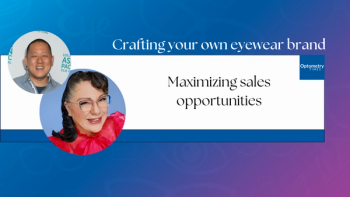
Q&A: Quy Nguyen, OD Director of Career Development and Minority Enrichment at SUNY
Where did you grow up?
The first eight years of my life I grew up in Vietnam. My parents were both born in Vietnam, and I was raised in the south. Our family became political refugees because my dad fought for the south. Because of that, the United States decided to sponsor us to come to the United States. I remember it was a really early morning, we got in the car and left and never came back. [Laughs] We were not more than 30 or 40 miles outside of Saigon, or what people call Ho Chi Minh City these days, along the coast. We lived in a fishing village in that area. We had some relatives in San Jose, CA. That’s where we settled, and I started third grade. I stayed in San Jose until I was 18, then I moved to Berkeley for college. I was in California until I was 22, then I moved to New York.
Why New York?
[Laughs] Being an Asian person and having parents who expected a lot of me, they always wanted me to got to an Ivy League school because that was really important to them. In their eyes, that was a sign of success. When I was at Berkeley, I applied to three different optometry schools: two in California and one in New York. New York was my last choice. When I had gotten into all three schools, that’s when the dilemma really started to come because I thought that I was going to stay in California for school. I received a scholarship from Berkeley-that was my number one choice, but it meant I would have stayed there for four more years. Being the young, curious man that I was, I said it’s either staying here at Berkeley for four more years, paying less for school, being around family and having all that comfort, or just taking a really big chance here and [laughs] move all the way to the other side of the country and experience something new. It’s been over seven years now that I’ve been in New York.
How did you get into optometry?
[Laughs] At the dinner table when I was growing up, you know, Asian parents love to talk about their kids. My parents were always talking about how they wanted their kids to be doctors. I think hearing it affects you. I volunteered quite a bit when I was in high school because I was an overachiever. We would volunteer at soup kitchens at the hospital, I really like helping people, and I thought being in health care was something I wanted to do. That was my mindset going into college. I shadowed at a couple of medical doctors’ offices, the dentist’s office, and then I happened to shadow at a really great optometry practice. The doctors there really loved what they did. After I had volunteered a couple of times, they offered me a job. Right before deciding to go to optometry school, one of the optometrists in said, “If you were my son and I was giving you advice, I would say that optometry is one of the greatest careers there is.” He really sold me.
Related:
How did you get involved with OptometryStudents.com?
Founder Matt Geller was my roommate in optometry school. We lived together for three years. Matt had this idea of a blog when we were roommates, and he was looking for other students to create content. I wanted to be involved, and that’s how I started writing articles for Matt.
How important is the site for helping new grads transition to professional life?
I think it’s another great resource to have. Even though the optometry curriculum is four years, with all the didactic stuff and training you to be a great clinician, there’s not enough time to learn about all the other aspects of optometry, careers, and life in general. NewGradOptometry does fill that niche. If you’re talking about life in corporate optometry or how to negotiate a contract or what to look for when you’re opening a practice, these are all practical questions that some optometry schools may not touch on. When I was a student, a lot of people told me your education is going to start when you graduate and start working. The more I’ve worked, that’s really true. So, it’s a great place for all those resources.
What do you do for down time?
I really like sports. I used to be a really shy kid, and one of the coaches in middle school recruited me to play basketball on the 8th grade team. That really changed my life because I was such a nerd, and a nerd wasn’t cool back then like it is now. [Laughs] I felt like I could gain confidence and be sociable, less awkward and less shy. So basketball really helped me. I played basketball in middle school, high school, and intramurals in college. Now I play every week. It keeps me in good shape, and I meet a lot of interesting people from other sectors, like film and music. I also watch a lot of sports, football and basketball. I’ve started doing Toastmasters, an organization for public speaking. I love to travel. I try to travel to a different country every year. That’s a big accomplishment for me because I’d never left the country until I was 21.
What’s something your colleagues don’t know about you?
Most people don’t realize that I grew up in Vietnam. I grew up on a farm. I had a water buffalo, my dad had a rice paddy, and we had potatoes, mango trees, and coconut trees in the front of our house. That wasn’t the most easy time in my life, but looking back it is one of the most important parts.
After you graduated, what was your biggest shock when you started working?
Two things. One is the real world is so much different than what you’re taught in school. I remember my first exam took two hours. I had to trim that down to 15 minutes when I worked with the medical doctor’s office. Just managing patients and time, it’s a lot different than what you’re used to as a student. Second is really understanding how medical billing works. It is really complicated. Learning how to it that the right way and efficiently so that you’re having more time for your patients was a big shock for me.
What is The Essential Money Conversation for Optometry Students?
A lot of us spend so much time in school so we could have promising careers and take care of ourselves and our families. I think a lot of us don’t really know a lot about money. I’m to trying to get across to the students that if you don’t know how to manage your money and make the money work for you, it’s going to be more stressful later on.
What’s something you’d like to change in the profession?
I hope that someday we’ll see a one-payer healthcare system. If a patient comes into the office and says, “Hey doc, my eye is having so much pain, I can’t see out of it,” the first question shouldn’t be, “What insurance do you have?” We’re spending so much time on administrative stuff that it’s taking time away from our patients.
What’s the craziest thing you’ve ever done?
This doesn’t sound very crazy in retrospect. Even though I grew up in Vietnam, my worldview was living in California. I studied abroad in Sienna, Italy, my third year in college. That was really scary for me because it was a lot of money and it was the first time I was going on a plane by myself to a place where people speak a different language. I was there for a summer. It was really amazing. I won’t ever forget it.
Newsletter
Want more insights like this? Subscribe to Optometry Times and get clinical pearls and practice tips delivered straight to your inbox.













































